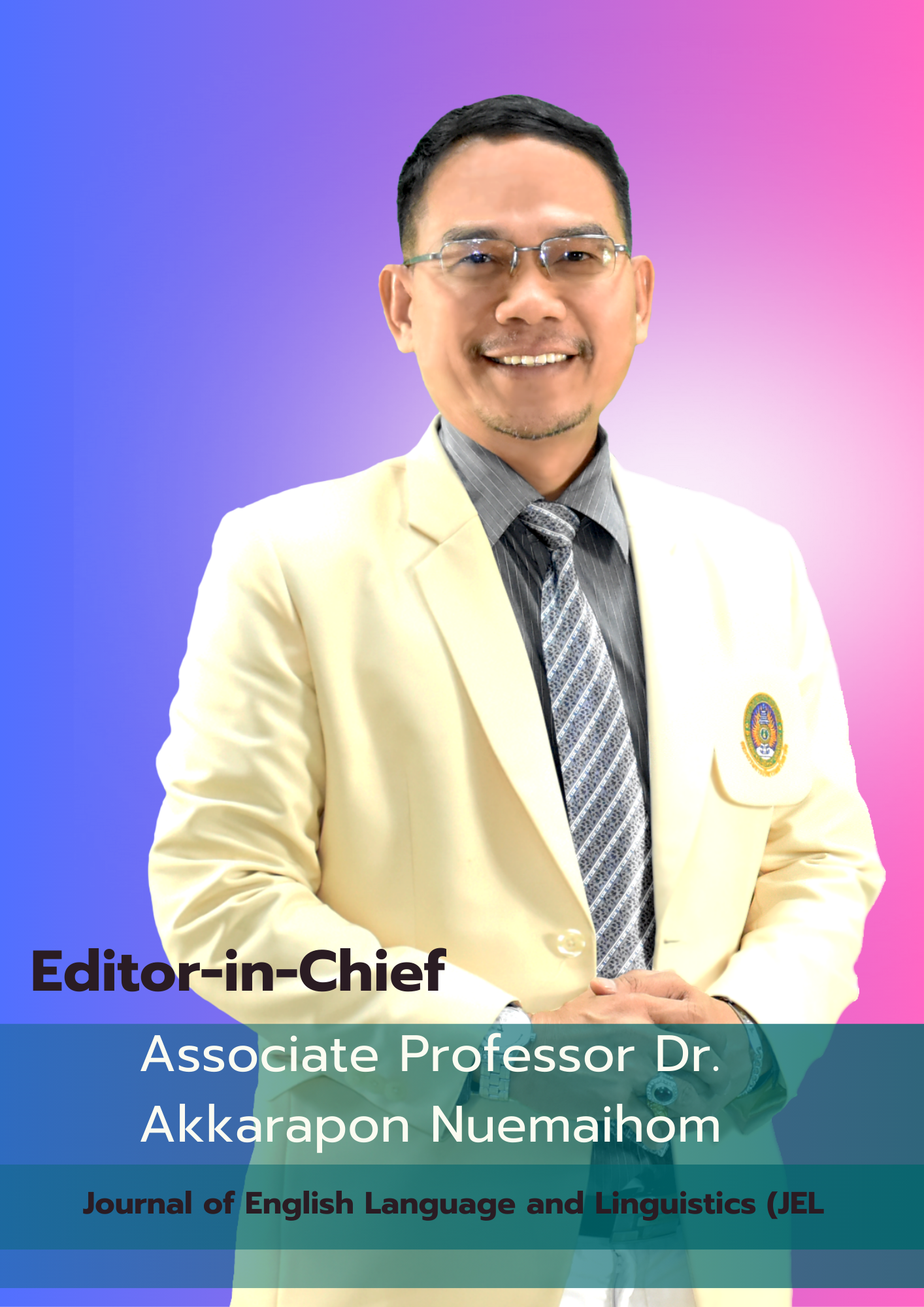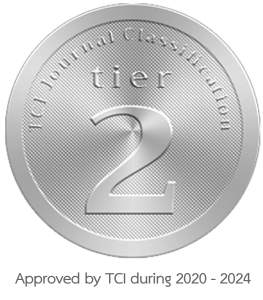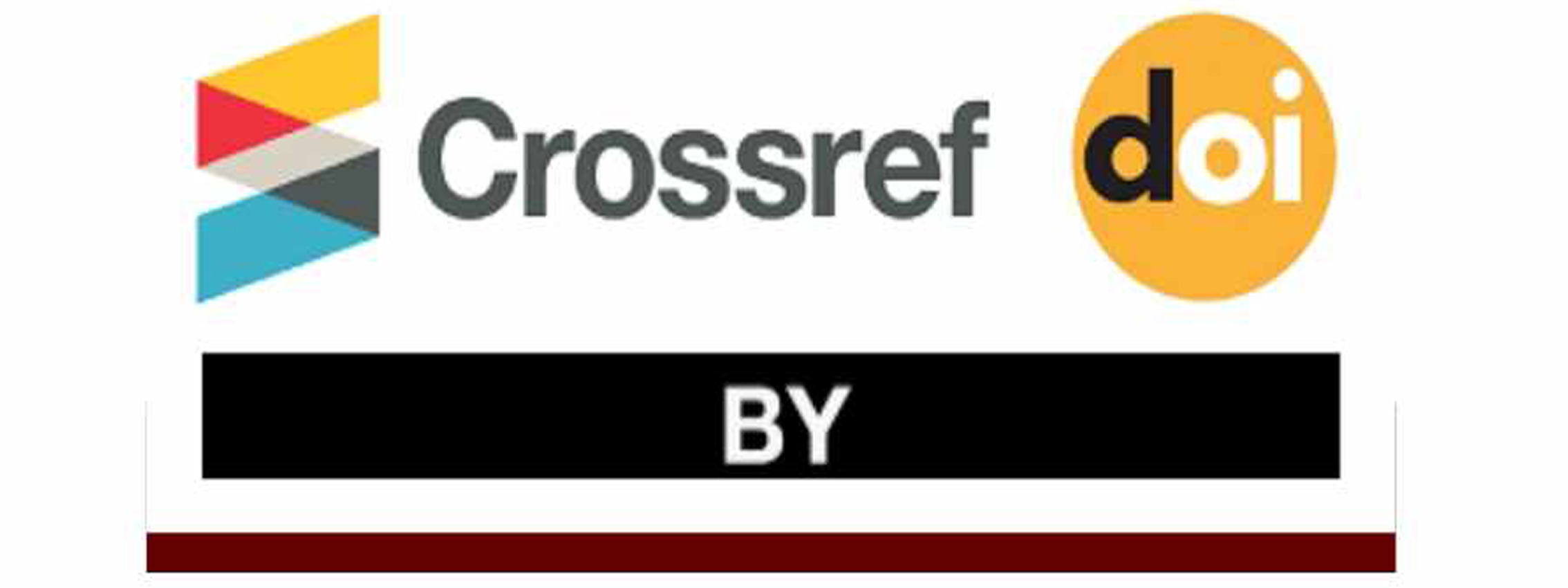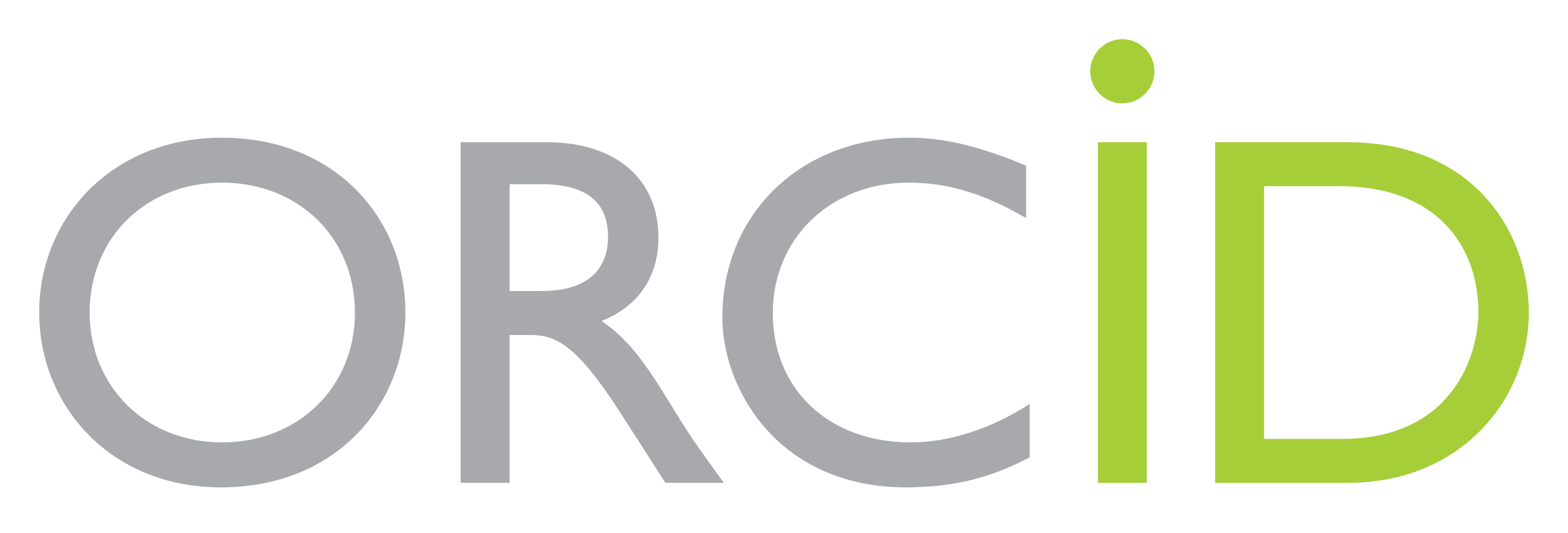Using Dilemma Scenarios in English Education to Enhance Undergraduate Students’ Speaking Skills and Perceptions
DOI:
https://doi.org/10.62819/jel.2023.67Keywords:
dilemma scenarios, English learning perceptions, speaking skillsAbstract
The purpose of this study was to investigate the efficacy of using dilemma scenarios in the
English education curriculum for improving undergraduate students' speaking abilities and
perceptions of English learning. 45 undergraduate students from a public university in northern
Thailand took "Listening and Speaking in Daily Life" in the first semester. A pretest-posttest
design was used in the study, which was supplemented by a twenty-item questionnaire. The
findings demonstrated a statistically significant improvement in speaking proficiency, as seen
by post-test scores that increased from an average of 17.80 to 23.07. The questionnaire reply
emphasized the pupils' strong impressions even further, with an average perception level of
4.23 on a five-point Likert scale. The capacity of the scenarios to effectively portray real-life
situations earned the most favourable evaluation, with an average score of 4.51. Furthermore,
students reported greater vocabulary learning, enhanced critical thinking abilities, and a
preference for the dilemma scenario methodology over traditional educational approaches. In
conclusion, this study indicates the educational importance of employing dilemma situations
in English instruction, emphasizing its ability to develop abilities and foster positive learning
perspectives among students. Dilemma scenarios are used in this study to provide students with
scenarios that call for serious thought and decision-making between possibilities. The purpose
of these scenarios is to imitate real-world circumstances where definitive answers are
frequently unavailable. This forces students to think more deeply and analytically while
expressing their reasoning in English. According to the study's findings, using dilemma
scenarios can help Thai undergraduate students improve their speaking abilities considerably
and give them a more engaging and hands-on English language education that is in line with
the needs of international communication.
References
Benson, P. (2001). Teaching and researching autonomy in language learning. Harlow. England:Pearson Education.Brown, H. D. (2014). Principles of language learning and teaching: A course in second language acquisition. Pearson Education, Inc.Burns, A., & Richards, J. C. (Eds.). (2018). The Cambridge guide to learning English as a second language. Cambridge University Press.Celce-Murcia, M., & McIntosh, L. (1991). Teaching English as a second or foreign language. Darasawang, P. (2007).English language teaching and education in Thailand: A decade of change. Cambridge Scholars Publishing.Derwing, T. M., & Munro, M. J. (2015). Pronunciation fundamentals: Evidence-based perspectives for L2 teaching and research. John Benjamins Publishing Company.Dewaele, J. M., & MacIntyre, P. (2016). Positive Psychology in SLA.Multilingual Matters. Dinsmore, D. L., Alexander, P. A., & Loughlin, S. M. (2008). Focusing the conceptual lens on metacognition, self-regulation, and self-regulated learning. Educational psychology Review, 20, 391-409. Dörnyei, Z., & Ushioda, E. (2021). Teaching and researching motivation(3rd ed.).Routledge. Facione, P. A. (2011). Critical thinking: What it is and why it counts. Insight Assessment, 1(1), 1-23. Foster, P., & Wigglesworth, G. (2016). Capturing accuracy in second language performance: The case for a weighted clause ratio.Annual Review of Applied Linguistics, 36, 98-116. Galloway, N., & Rose, H. (2015). Introducing global Englishes. Routledge. Gay, G. (2018). Culturally responsive teaching: Theory, research, and practice. Teachers College Press. Gillies, R. M. (2014). Cooperative learning: Developments in research.International Journal of Educational Psychology, 3(2), 125-140. Gilligan, C. (1982). In a Different Voice. Harvard University Press.Herreid, C. F. (1997). What makes a good case.Journal of College Science Teaching, 27(3).Jonassen, D. H. (1997). Instructional design models for well-structured and III-structured problem-solving learning outcomes.Educational Technology Research and Development, 45(1), 65-94. Kohlberg, L. (1921). The philosophy of moral development: Moral stages and the idea of justice (Vol. 1). San Francisco: Harper & Row. Kuh, G. D. (2001). Assessing what really matters to student learning inside the national survey of student engagement.Change: The Magazine of Higher Learning, 33(3), 10-17. Mercer, S., & Ryan, S. (2010). A mindset for EFL: Learners’ beliefs about the role of natural talent.ELT Journal, 64(4), 436-444. Meyers, C. (2021). Deception and the clinical ethicist.The American Journal of Bioethics, 21(5), 4-12.
Nucci, L., & Weber, E. K. (1995). Social interactions in the home and the development of young children's conceptions of the personal.Child Development, 66(5), 1438-1452. Nunan, D. (2012). Learner-centered English language education: The selected works of David Nunan. Routledge.Nunan, D. (2015). Teaching English to speakers of other languages: An introduction. Routledge.Oradee, T. (2012). Developing speaking skills using three communicative activities (discussion, problem-solving, and role-playing).International Journal of Social Science and Humanity, 2(6), 533.Rest, J. R. (1984). The major components of morality. Morality, moral behavior, and moral development, 24, 24-36. Richards, J. C. (2015).Key issues in language teaching. Cambridge University Press.Seargeant, P., & Swann, J. (Eds.). (2013). English in the world: History, diversity, change. Routledge.Taguchi, N. (2011). Pragmatic development as a dynamic, complex process: general patterns and case histories.The Modern Language Journal, 95(4), 605-627. Thornbury, S. (1997).About language: Tasks for teachers of English. Cambridge University Press. Van , M .M. (1999).The effective use of role-play: Practical techniques for improving learning. Kogan Page Publishers.Vygotsky, L. S., & Cole, M. (1978).Mind in society: Development of higher psychological processes. Harvard University Press.


















